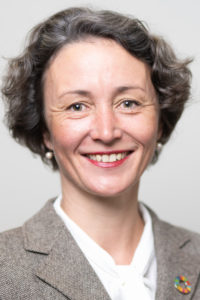On 11 December, key stakeholders from around the globe came together in Berlin to mark 50 years of partnership between the Consultative Group on International Agricultural Research (CGIAR) and Germany. Prof. Dr Anna-Katharina Hornidge contributed to the event as a speaker on the panel “Trade-Offs in Evidence-Based Decision Making”.

CGIAR is a global research partnership for a food-secure future dedicated to transforming food, land, and water systems in a climate crisis. Germany has been contributing to this international partnership-based research for sustainable development from shortly after foundation of the CGIAR in 1971. The event highlighted major accomplishments from the last five decades and looked ahead to future challenges and aspirations. This included a sneak peek of the 2025 CGIAR Flagship Report which is designed as a decision-maker’s guide to navigating food system science, directed specifically towards policy-makers at national, regional, and global levels.
Following official remarks by State Secretary Flasbarth, Federal Ministry for Economic Cooperation and Development (BMZ), and Executive Managing Director of CGIAR, Ismahane Eloufif, as well as the pre-lauch of the 2025 Flagship Report, a panel of experts delved into discussion of trade-offs in evidence-based decision-making, with a particular view towards the agricultural sector as compared to others. In her contributions, Anna-Katharina Hornidge gave an overview over the fragmented nature of the global science system, characterised by substantial power asymmetries which regularly result in a ‘lack of fit’ in different societal contexts of the scientific insights produced as well as to scientific authority becoming a resource mobilised in multilateral negotiations by some more than others. Based on this assessment she argued for multilaterally financed, international research such as exercised by CGIAR. Yet, she also called on the CGIAR system as a broker and bridge builder between different science systems and reminded the audience of the importance to work in close partnership especially also with the university-based research and science systems in the countries and regions where the CGIAR institutes are located.

Schreibe einen Kommentar